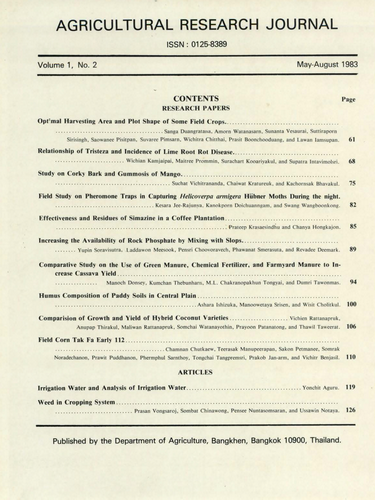Irrigation Water and Analysis of Irrigation Water
Abstract
Chemical water analysis is able to determine quantity and kind of soluble salts that constitute the total disolved solids in water. Most of irrigation waters that flow over the earth surface contain dissolved solids, principally calcium, magnesium, sodium, bicarbonate, chloride, sulphate, and traces of many other elements. These dissolved salts contribute to salinityand possess potential hazards associated with water use. These hazards may be categorized of the followings. The total soluble salts hazard - "C", sodium hazard - "S" , bicarbonate or "residual alkali" hazard, are specific ion hazard. By considering these categories, we may derive at an assessment of the hazards that may be involved in the use of the water for irrigation. Measures to minimize the destructive effects of hazardous water may be suggested. The differential effects of soluble salts on the yield of various plant species have suggested the classification of crops into three main groups : high salt tolerance, medium salt tolerance, and low salt tolerance.
Downloads
Published
How to Cite
Issue
Section
License
Thai Agricultural Research Journal



